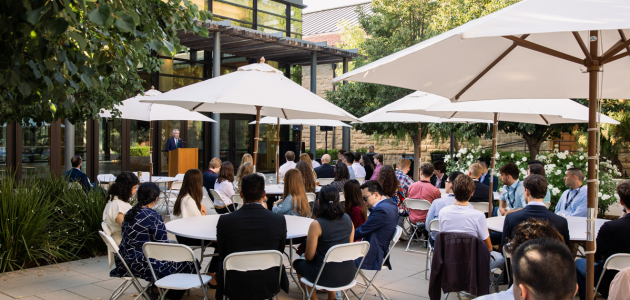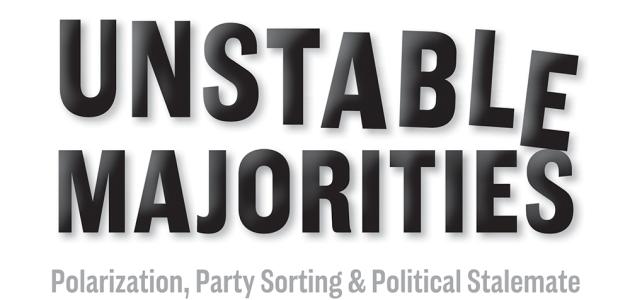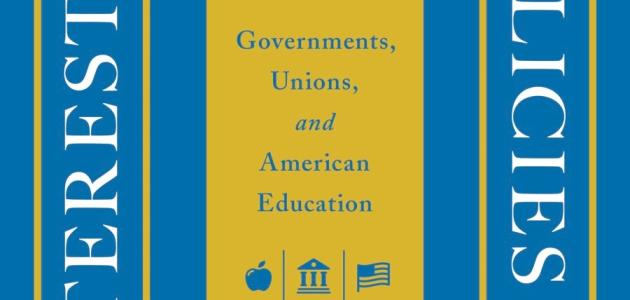In 2017 our nation faced a broad array of issues at home and abroad. Perennials such as health care reform, entitlement spending, North Korea, ISIS, Russia, and the contentious political cycle remained in the forefront, to be joined by tax reform and immigration.
Throughout it all, in publications across the country, Hoover fellows offered their unique brand of thoughtful and scholarly insight and ideas. A selection of those pieces follows.
HOW TAX REFORM WILL LIFT THE ECONOMY
by Michael J. Boskin, John F. Cogan, George P. Shultz, John B. Taylor via The Wall Street Journal, November 26, 2017
The present debate over tax reforms proposed by President Trump’s administration and embodied in bills that have passed the House of Representatives and the Senate Finance Committee has raised the basic question of whether the bills are “pro-growth”: Would the proposals raise current and future economic activity and generate federal tax revenue that would reduce the “static cost” of the reforms? This letter explains why we believe that the answer to these questions is “yes.
ECONOMISTS RESPOND TO SUMMERS, FURMAN OVER MNUCHIN LETTER
by Robert J. Barro, Michael J. Boskin, Douglas Holtz-Eakin, R. Glenn Hubbard,Lawrence B. Lindsey, Harvey S. Rosen, George P. Shultz, John B. Taylor via The Washington Post, November 29, 2017
Dear Lawrence Summers and Jason Furman, we read with interest your Dear Colleague letter in The Washington Post in response to ours in the Wall Street Journal. You ask if we have considered several points you make. The answer is yes — we have considered each before coming to our conclusion. Responses to each of your points follow.
HOW TRUMP CAN HIT 3% GROWTH—MAYBE
by Edward Paul Lazear via The Wall Street Journal, February 27, 2017
Can President Trump deliver on his economic promises? The administration is forecasting 3.2% annual growth in America’s gross domestic product over the next 10 years. Most analysts’ forecasts are far lower—in the range of 2%, the rate that has prevailed since the end of the 2007-09 recession.
CAN KIM JONG-UN CONTROL HIS NUKES?
by Michael R. Auslin via The New York Review of Books, October 27, 2017
Perhaps the world should worry less about the threat of a North Korean-instigated nuclear war and more about the risk of a nuclear accident. Unlike a conventional military, where tanks, trucks, even planes are relatively simple instruments of war, owning nuclear weapons is a huge, expensive, and complex responsibility. The most frightening question raised by Kim Jong-un’s pursuit of the ultimate weapon is also the simplest: Can he control his nukes?
WHY ENTITLEMENTS KEEP GROWING, AND GROWING, AND...
an Interview with John F. Cogan by Tunku Varadarajan via The Wall Street Journal, September 8, 2017
Once granted, benefits always multiply and are nearly impossible to repeal, John Cogan says. Only three presidents have been able to rein them in. Donald Trump’s gleeful deal with the Democrats—ratcheting up the debt ceiling, as well as the ire of the Republican establishment—puts John Cogan’s mind on 1972. Starting in February of that year, the Democratic presidential candidates engaged in a bidding war over Social Security to gain their party’s nomination.
THE HEALTH REFORM THAT HASN'T BEEN TRIED
by Scott W. Atlas via The Wall Street Journal, October 3, 2017
Republicans have now failed twice to repeal and replace ObamaCare. But their whole focus has been wrong. The debate centered, like ObamaCare, on the number of people with health insurance. A more direct path to broadening access would be to reduce the cost of care.
WHY DO THESE WARS NEVER END?
by Victor Davis Hanson via National Review, November 21, 2017
Weaker enemies, by design, do not threaten stronger powers existentially; ‘proportionality’ means stalemate. From the Punic Wars (264–146 b.c.) and the Hundred Years War (1337–1453) to the Arab–Israeli wars (1947–) and the so-called War on Terror (2001–), some wars never seem to end.
EVERYTHING YOU NEED TO KNOW ABOUT TRADE ECONOMICS, IN 70 WORDS
by George P. Shultz and Martin Feldstein via The Washington Post, May 5, 2017
If a country consumes more than it produces, it must import more than it exports. That’s not a rip-off; that’s arithmetic. If we manage to negotiate a reduction in the Chinese trade surplus with the United States, we will have an increased trade deficit with some other country.
FAREWELL
by Thomas Sowell via Creators Syndicate, December 27, 2016
Even the best things come to an end. After enjoying a quarter of a century of writing this column for Creators Syndicate, I have decided to stop. Age 86 is well past the usual retirement age, so the question is not why I am quitting, but why I kept at it so long. It was very fulfilling to be able to share my thoughts on the events unfolding around us, and to receive feedback from readers across the country — even if it was impossible to answer them all.
THE EXHAUSTION OF AMERICAN LIBERALISM
by Shelby Steele via The Wall Street Journal, March 5, 2017
The recent flurry of marches, demonstrations and even riots, along with the Democratic Party’s spiteful reaction to the Trump presidency, exposes what modern liberalism has become: a politics shrouded in pathos. Unlike the civil-rights movement of the 1950s and ’60s, when protesters wore their Sunday best and carried themselves with heroic dignity, today’s liberal marches are marked by incoherence and downright lunacy—hats designed to evoke sexual organs, poems that scream in anger yet have no point to make, and an hysterical anti-Americanism.
A 'CITY ON A HILL' AS A FORTRESS IN A MOAT
by Abbas Milani, Larry Diamond, Michael McFaul via The Atlantic, February 3, 2017
The notion that one form of prejudice can defeat another is an illusion. America, born with the aspiration of becoming “a city on a hill,” faces the serious danger of becoming a fortress, deluded in the belief that walls and airport detention rooms will offer security and prosperity.
AYAAN HIRSI ALI AND ASRA Q. NOMANI RESPOND TO READERS
by Ayaan Hirsi Ali, Asra Q. Nomani via The New York Times, June 23, 2017
In mid-June, Ayaan Hirsi Ali and Asra Q. Nomani testified before the Senate Committee on Homeland Security and Governmental Affairs. During the hearing, they weren’t asked any questions about political Islam by the Democratic women on the panel — an experience they argue is emblematic of a troubling trend among progressives to overlook the brutal reality of Islamist extremism.
ENOUGH IS ENOUGH: HOW TO STOP RUSSIA'S CYBER-INTERFERENCE
by Michael McFaul via The Washington Post, September 28, 2017
Congressional and Justice Department investigations, as well as terrific investigative reporting over the last year, have revealed the comprehensive scale of Russia’s violation of our sovereignty. This was done not by crossing physical borders but by invading multiple virtual boundaries.






















